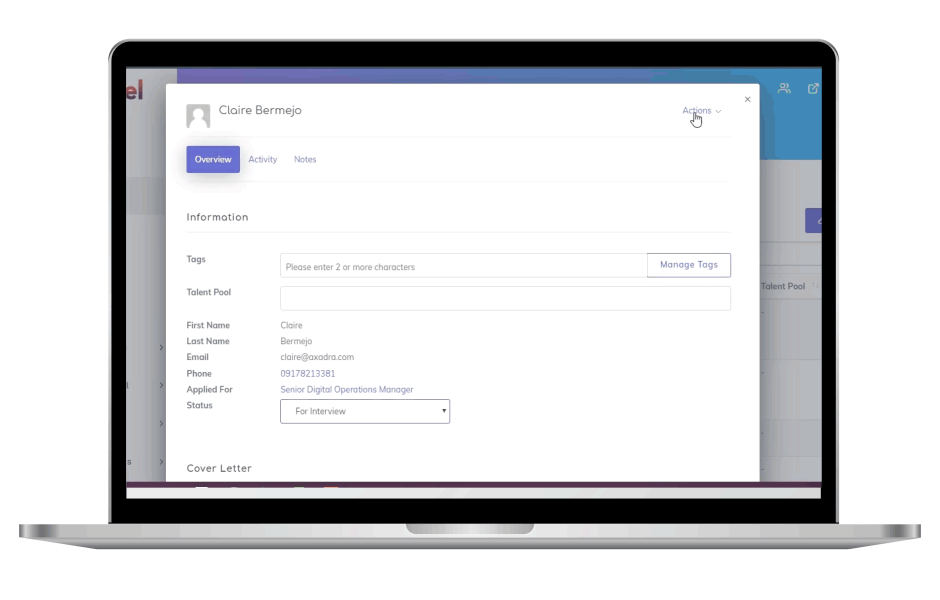Nowadays, almost everything is done digitally. From catching up with friends to watching movies and streaming music, there are many activities to be done with the help of the internet.
Lately, people have been utilizing this technology to aid their job seeking. Gone are the days where applicants line up at an office to get the chance to speak with a recruiter and pass their resumes personally. Now, individuals simply go online and search for job openings there. They do this by visiting various job portals to find a position that suits their qualifications and needs.
What is a Job Portal?
A job portal is a type of online platform that can provide you with job boarding solutions. This is a kind of website where you can easily post your job vacancies.
Job portals are also platforms where job seekers can easily search for job openings in various companies. This type of website provides individuals with a long list of options so they can choose where to apply based on their preferences and qualifications.
Third-Party vs. In-house Job Portals
Companies typically use job boards like Indeed, Glassdoor, and Getwork to advertise their job openings online. These third-party websites allow them to post job ads seamlessly and quickly. But lately, some companies have been taking advantage of job portal website development services to create a recruitment platform made especially for their organization.
Third-party and in-house job portals both have their advantages and disadvantages. To help you decide which type of job portal to utilize for your company, let us discuss the different features of these types of job portals.
Third-Party Job Portals
This is the most common type of job portal used by companies around the world. These are third-party sites that allow you to easily post your job ads online. You can also use this platform to review posted resumes and find qualified candidates for the open position in your organization.
Third-Party Job Portal Advantages
Third-party job portals are reliable platforms that provide companies with various benefits. That is why it is a popular choice among different organizations.
Easy-to-Use Search Filters
When you use this type of job portal, you can easily shortlist the most qualified candidates for your organization. This is possible through the search filters available on this platform.
With the help of this function, you can easily find candidates’ resumes that contain the skills and experiences that you are looking for. This means that your HR team no longer needs to browse through hundreds of resumes manually.
Quick and Efficient
Third-party job portals allow you to post job ads quickly. With just a few clicks, you can display your job opening in front of thousands of job seekers.
Using this type of job portal will also help you see applications in real-time and process candidates efficiently. Additionally, you can update your job ad immediately if you have already found the right candidate for the job. You can do this to stop receiving additional applications and avoid overwhelming your recruitment team.
Reach More Job Seekers
Most job seekers who choose to apply online go to third-party job portals to find openings in various companies. This means that posting your job ad on this type of platform will allow you to broadcast your job openings to a huge pool of potential applicants. This opportunity gives you more chances of finding the most qualified candidate for the open position in your organization.
Third-Party Job Portal Disadvantages
No matter how good third-party job portals are, they can still have disadvantages. Some issues you may encounter when using this type of job portal include the following.
Cost
Using third-party job portals can be costly in the long run. This happens because some third-party job portals require you to pay a subscription fee and other costs to post your job ads and display them to job seekers. You may also have to pay extra for access to additional features, such as applicant tracking or analytics.
Incomplete Reports
You might not know how well your job ads are performing when you use third-party job portals. Although you can pay an extra fee to access your analytics, its reports may not be as in-depth as you are expecting.
Without enough data, you might not have an idea of how to improve your job listing. Although you can always choose to do trial and error testing, this can be time-consuming and even unfruitful.
In-House Job Portals
Aside from using the available job portals online, you can choose to create one for your organization. Here are some of the advantages and disadvantages you can encounter if you decide to do so.
In-House Job Portal Advantages
Developing a job portal website made especially for your company may allow you to find qualified applicants much easier.
Unique Branding
Search for qualified applicants while also promoting your brand online. Once you develop an in-house job portal for your company, you can customize it to your branding specifications.
You can design your job portal however you want to have it reflect your company’s values and culture. Additionally, you can add more pages to let job seekers know more about your organization and convince them to apply for an open position.
Time- and Cost-Efficient
Once you start using an in-house job portal, you do not have to post your job ads on different platforms, which can be time-consuming. Now, you just have to publish and update your job listings on a single platform, saving you the hassle of switching between multiple websites.
Additionally, choosing to use an in-house job portal can help you save a significant amount of money. With this type of job portal, you would not have to pay for various subscriptions and membership fees to publish your job ads.
Easy Customization
When you develop an in-house job portal for your company, you can be in control of what features you want to have. Some of the useful functions you can add to your platform are:
- Applicant tracking system (ATS)
- In-depth analytics
- Filtering options
In-House Job Portal Disadvantages
Similar to third-party job portals, in-house job portals also have some disadvantages that you should learn about.
High Upfront Costs
You might need to invest a large amount of money in the development of your job portal. This investment may be too costly for small- to medium-sized businesses and may not be a very smart move if you are just starting.
That is why it is important that you consider every business decision that you make. Finding out about the pros and cons of every choice will help you avoid any issues.
Reach Fewer Candidates
Almost all job seekers search for jobs in well-established job portals. Unless an applicant wants to apply to your company specifically, they may have a hard time finding your job portal online.
This issue can leave you with a limited pool of talents. Because of this, your HR department may have a hard time finding the most suitable candidate for your open position.
Which Type of Job Portal Should You Choose?
Your choice between third-party and in-house job portals should depend on your business needs and capabilities. If you are running a small business, it is best if you use third-party job portals first. Developing a job portal right away may be too costly for your business.
On the other hand, if you have a larger, more well-known company, you can consider building an in-house job portal. Since you most likely have the extra budget to pay for the upfront costs, you can afford the development of your in-house job portal. Job seekers are also more likely to know about your brand and search for it when applying for jobs, so you do not have to worry about having a smaller pool of talents.
In an ideal setting, you should take advantage of both types of job portals. You can utilize third-party job portals to reach more candidates and have a larger pool of qualified talents. Then, you can use an in-house job portal to support your branding and have a specific platform for your job ads that reflects your company’s values and culture. It is best to utilize both job portals’ advantages to improve your company’s overall talent profile.













